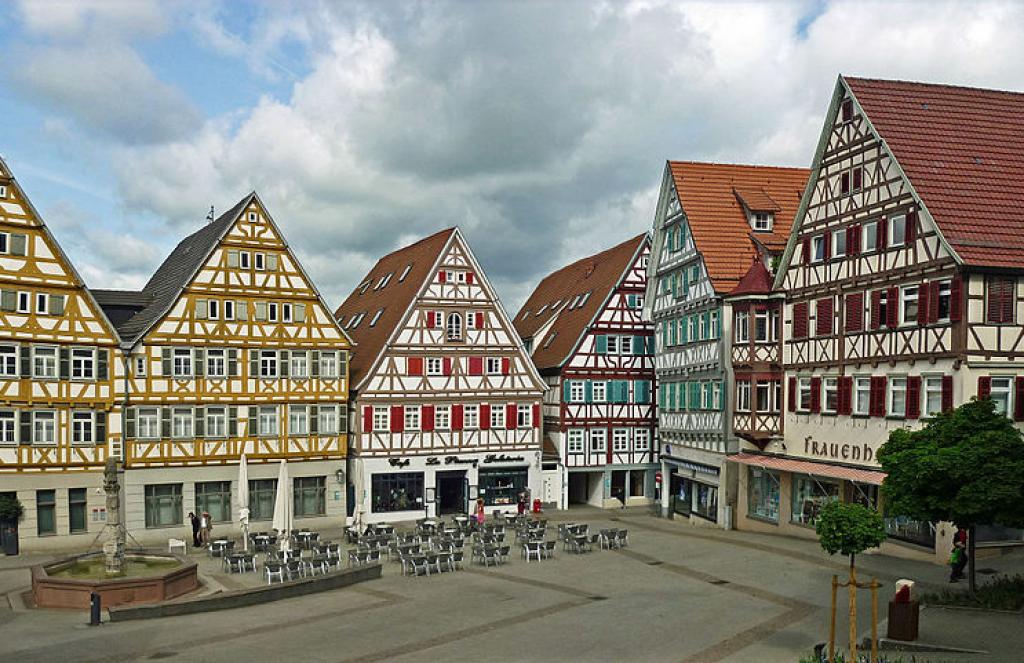Thessaloniki gets ready for its metro launch in November
The underground rapid transit lines have been under construction for almost two decades due to various project delays
 TheMayor.EU logo
TheMayor.EU logo 
Herrenberg is considered the 'millitary' city in Luxembourg as the national army headquarters are located there , Source: SchiDD on Wikipedia, CC BY-SA 4.0
The Minister of Defence, François Bausch, presented a new plan to drastically reduce carbon emissions by the army and the Ministry of Defence
Last Friday, Luxembourg’s Deputy Prime Minister and Minister of Defense, François Bausch, presented an assessment of defence-related greenhouse gas emissions, followed by a plan to reduce or offset them. According to him, although CO2 emissions from military vehicles cannot be reduced because there are no alternatives, the Ministry of Defence has many other options to cut greenhouse gases.
Furthermore, he said that he is determined to use any and all means to make Luxembourg’s defence forces as green as possible through the introduction of sustainable criteria, renewable energies and carbon offsetting initiatives.
According to the report François Bausch, in 2019 the Grand Duchy’s Defence and Armed Forces emitted 19,330 tonnes of CO2, which represented 1.5% of the country’s total emissions.
Meanwhile, the top five emitting activities of the defence forces between 2017 and 2020 were those produced by goods and services purchased by the Defence Ministry, military aviation, heating of buildings, motor vehicles and finally, the emissions for the manufacturing and launch of the GovSat-1 satellite in 2018.
The first step in the plan to reduce emissions by the Ministry of Defence is renovating the Herrenberg barracks with the latest energy efficiency technology. This move would reduce emissions linked to heating significantly.
Furthermore, the army plans to install and run its own renewable energy plants and halve emissions linked to the purchase of electricity. The document estimates that, because of this, military installations will rise by 25% but emissions will drop by 78%.
Sadly, when it comes to land vehicles and aircraft, there is very little that can be done, as currently there are no carbon-neutral alternatives on the market. The army, though, will try to reduce indirect emissions by participating in military alliances that include resource sharing. Thanks to them, authorities will have to purchase fewer vehicles.
Luxembourg Defence will also electrify its fleet of civilian vehicles and invest more into the research and development of CO2-neutral fuels and propulsion systems.
Finally, the Ministry plans to offset emissions that cannot be reduced at this stage through acquiring greenhouse gas certificates. They have already relegated a portion of their 2022 for that.
François Bausch was quoted in a press release, saying: "This data shows that, despite the current impossibility of reducing direct emissions from military vehicles and aircraft, the Ministry of Defence still has great potential to reduce its carbon footprint. I am determined to use all the means in my possession so that our army becomes a greener army while increasing its operability."

The underground rapid transit lines have been under construction for almost two decades due to various project delays

Now you can get your wine in Talence by paying directly in Bitcoin

That’s because the state has to spend money on updating the railway infrastructure rather than subsidizing the cost of the popular pass

Rethinking renewable energy sources for the urban landscape

The examples, compiled by Beyond Fossil Fuels, can inform and inspire communities and entrepreneurs that still feel trepidation at the prospect of energy transition

Now you can get your wine in Talence by paying directly in Bitcoin

The 10th European Conference on Sustainable Cities and Towns (ESCT) sets the stage for stronger cooperation between the EU, national and local level to fast track Europe's transition to climate neutrality.

At least, that’s the promise made by the mayor of Paris, Anne Hidalgo

The underground rapid transit lines have been under construction for almost two decades due to various project delays

At least, that’s the promise made by the mayor of Paris, Anne Hidalgo

Hostal de Pinós is located in the geographical centre of the autonomous region

Despite its church-y name, the district has long been known as the hangout spot for the artsy crowds

Urban dwellers across the EU are having a say in making their surroundings friendlier to people and the environment.

Forests in the EU can help green the European construction industry and bolster a continent-wide push for architectural improvements.

Apply by 10 November and do your part for the transformation of European public spaces

An interview with the Mayor of a Polish city that seeks to reinvent itself

An interview with the newly elected ICLEI President and Mayor of Malmö

A conversation with the Mayor of Lisbon about the spirit and dimensions of innovation present in the Portuguese capital














